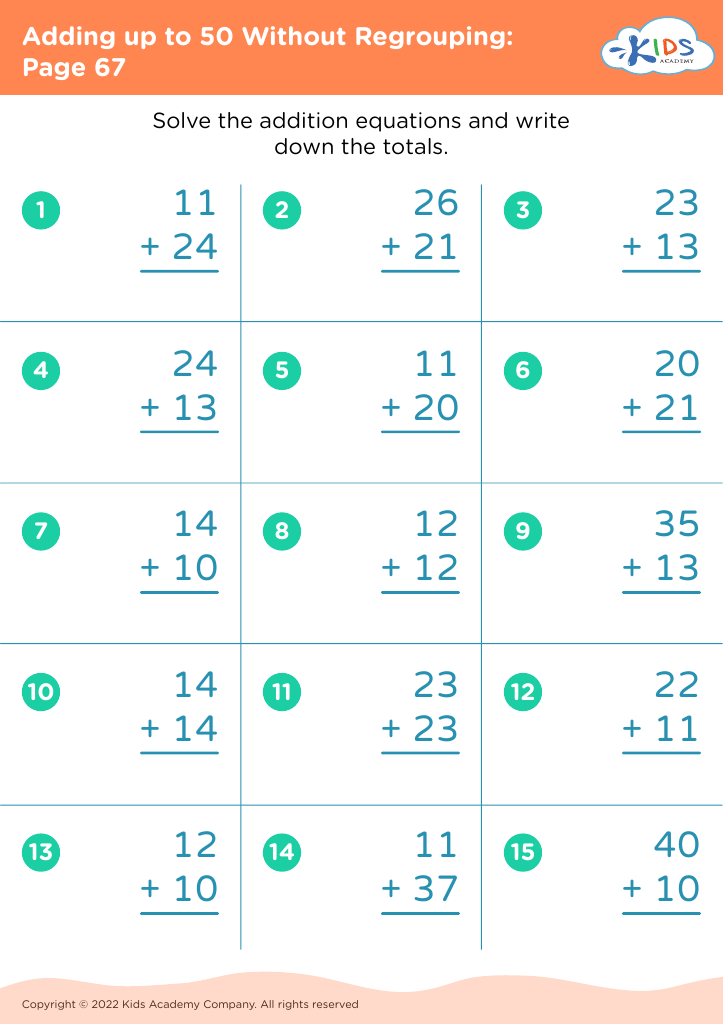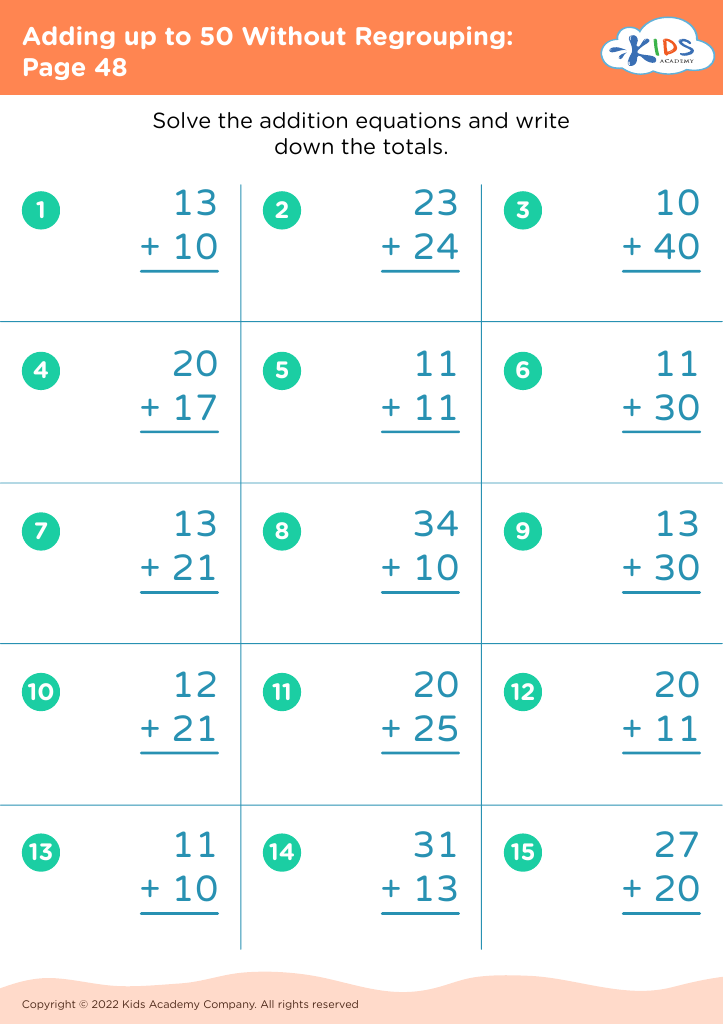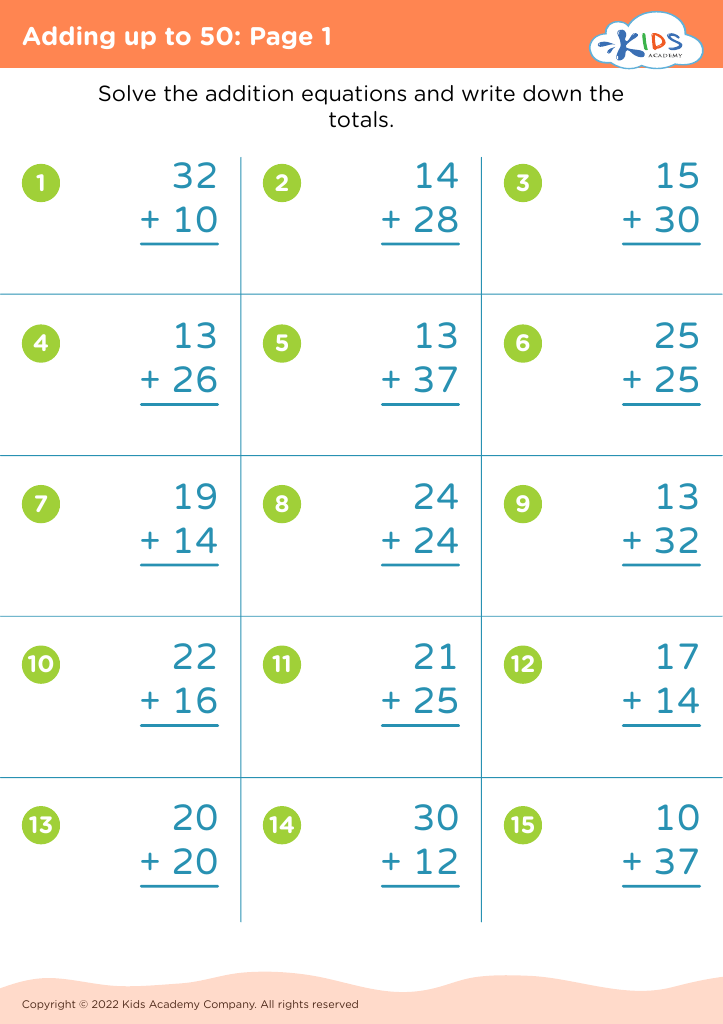Basic Addition Adding up to 50 Worksheets for Ages 7-9
7 filtered results
-
From - To
Explore our engaging "Basic Addition Worksheets for Ages 7-9," designed to help young learners master addition skills up to 50. These worksheets provide a variety of fun and interactive questions, ensuring that children stay motivated while developing their problem-solving abilities. With colorful graphics and diverse question formats, our resources cater to different learning styles and are perfect for both classroom and home use. Ideal for reinforcing essential math concepts, the worksheets help build confidence, fluency, and a strong foundation in mathematics. Get started with your child's addition journey today and make learning enjoyable and effective!
Basic addition, especially up to 50, is a foundational skill for children aged 7-9, and it lays the groundwork for more advanced mathematical concepts. Proficiency in addition helps students develop critical problem-solving skills necessary for day-to-day life, from budgeting their allowance to measuring ingredients while cooking. Parents and teachers should care about this skill for several reasons.
Firstly, mastering addition enhances a child's confidence and enjoyment in mathematics. When students feel competent in basic calculations, they are more inclined to engage in higher-level math, preparing them for future academic challenges.
Secondly, addition is vital for building mathematical literacy. As children progress in school, they will encounter concepts such as multiplication, fractions, and word problems that rely on strong foundational skills in addition.
Finally, the ability to add easily contributes to smoother transitions during lessons and assessments. If children struggle with basic addition, they may become frustrated and disengaged in their learning process.
Overall, nurturing a strong understanding of basic addition cultivates positive attitudes toward math, fosters independence, and equips children with essential life skills that extend beyond the classroom. Therefore, prioritizing this skill is crucial for both parents and educators.



















